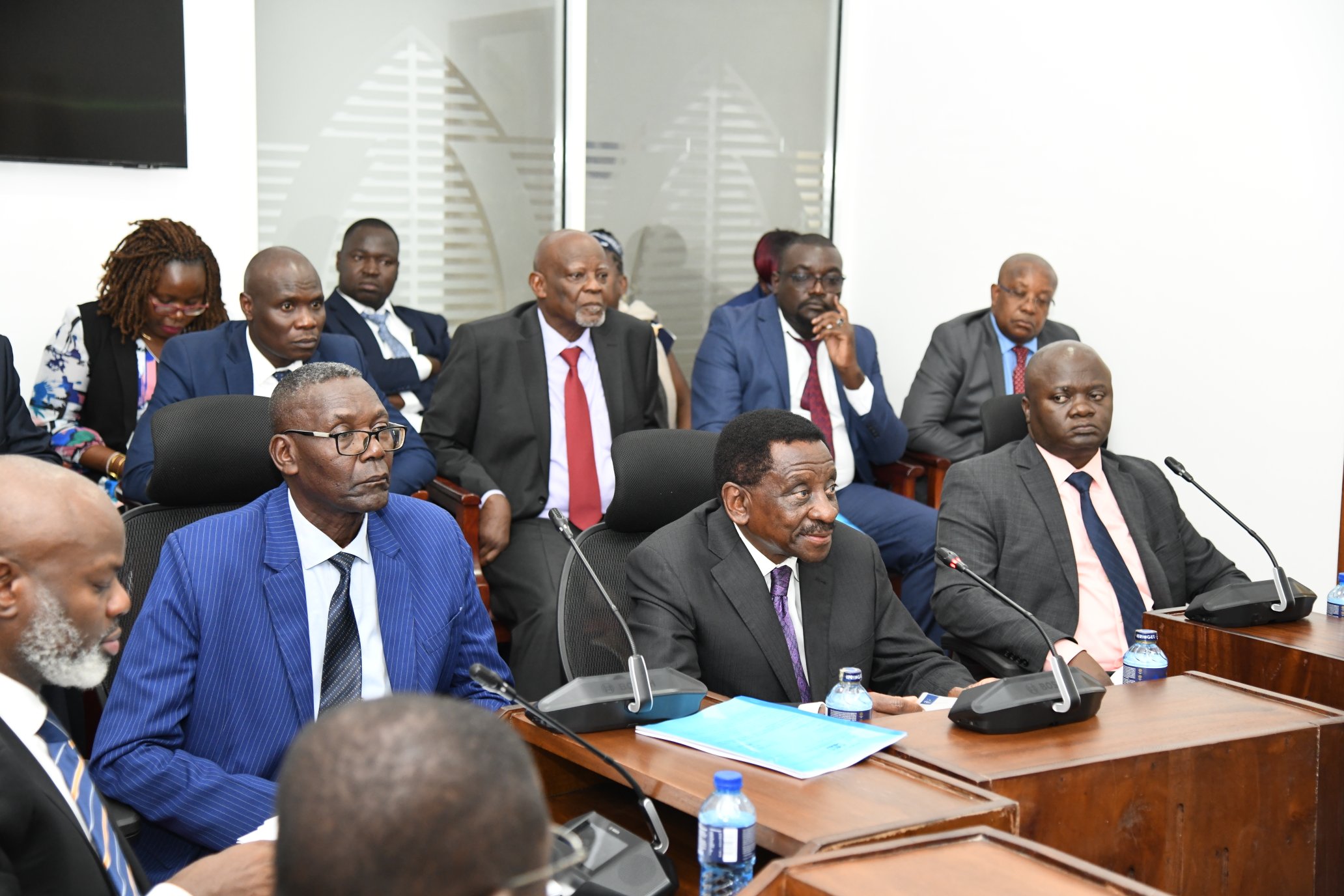National Treasury faces scrutiny over Sh161 billion debt repayment anomalies

Gathungu pointed out that her office was unable to obtain all the necessary documents to link the borrowed funds to specific projects.
Auditor General Nancy Gathungu has put the National Treasury under scrutiny over discrepancies in the repayment of external debt, which amounted to Sh161 billion, over the past three financial years.
In a special audit report presented to the National Assembly’s Public Debt and Privatisation Committee, Gathungu raised concerns over unclear expenditure related to debt servicing, specifically highlighting significant variances between budgeted, approved, and actual debt repayments for the financial years 2020-2021, 2021-2022, and 2022-2023.
More To Read
- Audit flags 25 TVET institutions for breaching procurement, financial regulations
- Audit reveals KNTC let Sh40.6 million worth of food rot amid poor oversight and overstocking
- Auditor General flags REREC for illegally siphoning Sh110 million from fuel levy
- Education stakeholders urge EACC, DCI to probe Sh3.7 billion ghost schools scam
- Audit exposes KICC spent Sh30.9 million on hotel meetings contrary to law
- Taxpayers lose Sh4.8 billion to interest payments on delayed donor projects - report
Gathungu revealed that the actual repayments in the financial years 2020-2021 and 2021-2022 fell short of the amounts approved by the Controller of Budget by Sh1.4 billion and Sh83.3 billion, respectively.
These underpayments exceeded the legal variance limit of five per cent, reaching as high as 10 per cent in some instances.
However, in the following financial year, the Treasury surpassed the approved amount by a substantial Sh77 billion.
Baringo North MP Joseph Makilap raised concerns over potential corruption.
"This could be an issue for corruption… The PFM Act says you don’t procure services and goods beyond your budget. If you do it, it is an offence," he said.
Director of Public Audit at the Office of the Auditor General Gideon Mokaya emphasised the need for accuracy in the budgeting process.
Variances high
“Our position is that these variances are high, and if they are doing the budgeting process, they are captured accurately so that the variances are not as big as we see here,” Mokaya said.
In response, the Treasury attributed the fluctuations to the changing exchange rates of the Kenyan shilling against other currencies.
Despite this, Gathungu pointed out that her office was unable to obtain all the necessary documents to link the borrowed funds to specific projects.
The audit also revealed concerns regarding project loan management. Out of 32 sampled loans, only 18 projects had undergone feasibility studies to determine their necessity.
Further, 22 of the 32 projects lacked documentation to show public participation, leaving the projects without input from the public.
The audit also found that many project loans were not properly approved, exposing them to risks such as double-financing and costs exceeding budgeted amounts.
Only five of the 32 project loans had received legal opinions from the Attorney General.
Top Stories Today
- Agnes Wanjiru's family slams UK Defence Secretary John Healey over delayed justice
- Why do African elites seek medical treatment abroad?
- Two Burundian nationals charged over Sh12 million ivory haul in Mombasa
- 58 ex-EU ambassadors accuse Israel of genocide in Gaza, warn bloc risks complicity in war crimes
- US warns of heavy gunfire near its embassy in Haiti
- Rwanda agrees to take 250 migrants deported from US in bid to deepen ties with Washington











































